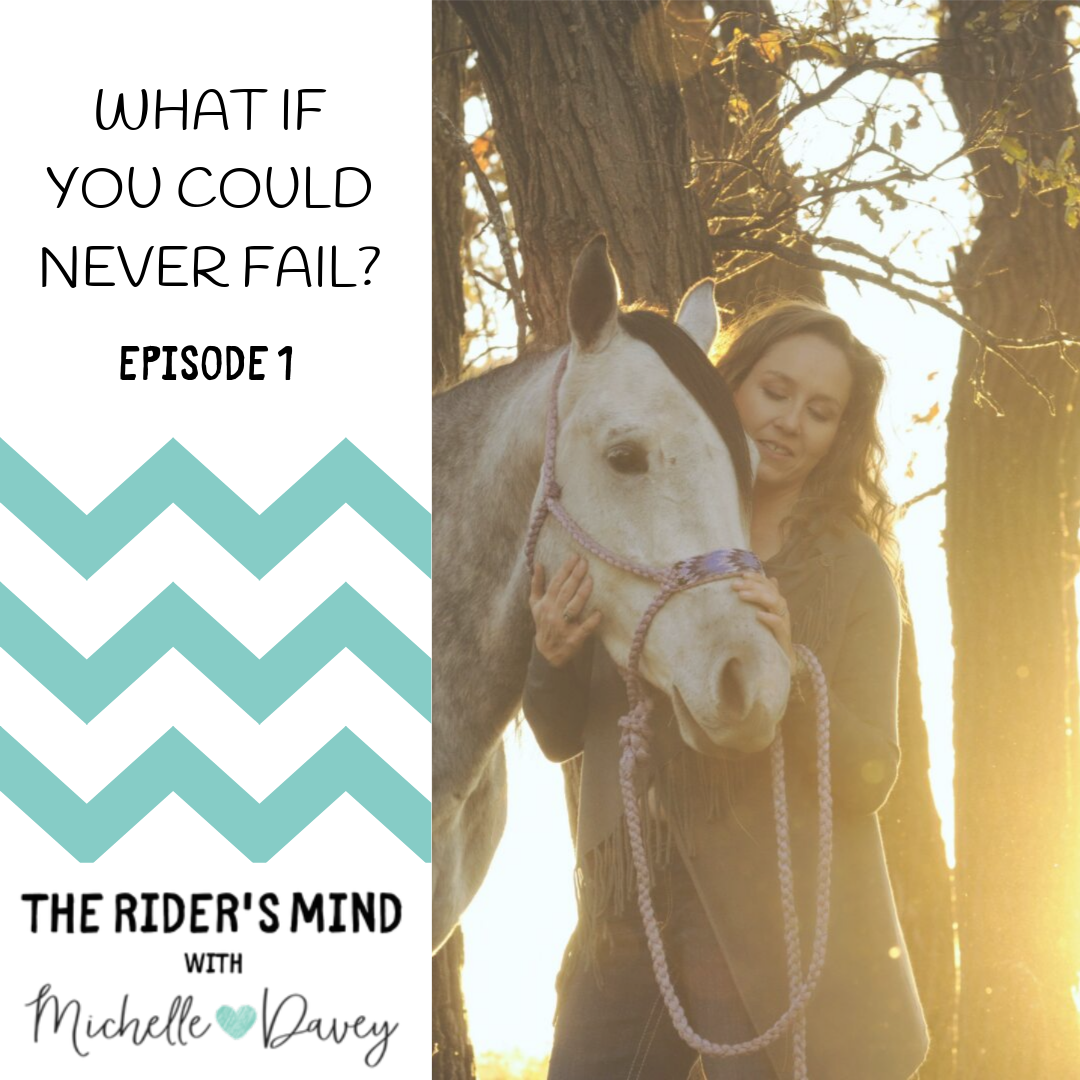
What if you could never fail?
Episode #1 – The Rider’s Mind Podast
If you could learn to never fail again, would you go for it? What would you do tomorrow if you knew you only had to fail one more time before you had your big breakthrough?
In this episode, I talk about failure. Listen for tips on how to reframe the idea of failure in order to succeed.
Show Notes:
We all define failure differently. A failure for one person might be placing second. A failure for another person might be falling off.
So… what if we change our definition of failure? Thinking about “feedback” rather than failure will help you see setbacks as stepping stones towards your goal. Framing your failures this way allows you to learn from the things that went wrong and move forward.
What if it was mandatory to fail in order to achieve something? Not every success comes after failure, but many successes do follow failure(s). We need to be willing to fail in order to move forward.
Even if you fail, you are still worthy. Riders can accomplish their goals, even after they’ve failed or experienced a setback. Failures are part of life’s curriculum- they are something you go through in order to learn important lessons.
What if the person who failed the most and adjusted was the winner? Many successful riders have “failed” many times, but they perceive those failures as part of the process of improving.
Try thinking about “failures” as “things that didn’t work out”. The things that don’t work out as planned can give you the information you need to succeed. Having a growth mindset can help us learn from our mistakes instead of being frustrated. Try this free worksheet to help you shift your thinking about failure.
Submit your name and email to be signed up for Michelle’s newsletter and receive the worksheet on reframing your “failures”.
After a competition run, think about two things that went well. Then, assess the feedback and think about what you learned from that run. What information did you gain from the run? What can you change or improve next time?
